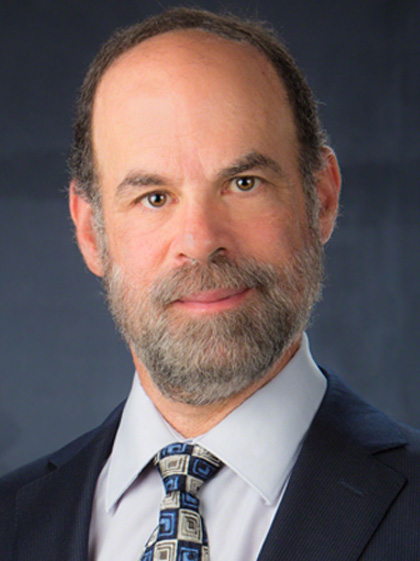The 15th Workshop on Value Modeling and Business Ontologies (VMBO 2021) will be virtually held between the 4th and 5th of March of 2021 (in Central European Time – CET).
Here you can find the updated program of VMBO 2021. To receive the links to all sessions and resources via e-mail, please make your registration here.
Workshop Proceedings
The conference proceedings for VMBO 2021 are now available at http://ceur-ws.org/Vol-2835/.
Thursday March 4th
| Opening | Closing | Title |
|---|---|---|
| 11:00 | 11:10 | Opening Session |
| 11:10 | 12:30 | Session 1: Trust and Value |
| 12:30 | 13:30 | Break |
| 13:30 | 14:30 | Keynote: João Paulo A. Almeida |
| 14:30 | 14:45 | Break |
| 14:45 | 15:45 | Session 2: Enterprise and Domain Modeling |
| 15:45 | 16:00 | Break |
| 16:00 | 17:00 | The Business Architecture Guild: Mike Rosen |
| 17:00 | 17:30 | Virtual Happy Hour |
Friday March 5th
| Opening | Closing | Title |
|---|---|---|
| 11:10 | 12:30 | Session 3: Money and Contracts |
| 12:30 | 13:30 | Break |
| 13:30 | 14:30 | Keynote: Daniel Amyot |
| 14:30 | 14:45 | Break |
| 14:45 | 15:45 | Session 4: REA |
| 15:45 | 16:00 | Closing Session |
Session 1: Trust and Value
Session chair: Hans Weigand
- Value Aspects of Wardley Maps (Youtube)
Pavel Hruby and Jesper Kiehn - Ontological Foundations for Trust Management: Extending the Reference Ontology of Trust (Youtube)
Glenda Amaral, Tiago Prince Sales, Giancarlo Guizzardi, and Daniele Porello. - A Decentralized Fair Governance Model for Permissionless Blockchain Systems (Video)
Shiva Jairam, Jaap Gordijn, Isaac da Silva Torres, Fadime Kaya, and Marc Makkes. - A Systematic Literature Review Toward a Taxonomy of Open Value Networks (YouTube)
Rémi Collet and Wim Laurier
Keynote: João Paulo A. Almeida
The impact of an Ontological Theory of Relations in Enterprise Modeling
Session chair: Giancarlo Guizzardi
Abstract: In this talk, I will show how the explicit attention to social and legal relations can lead to improvements in enterprise modeling, with consequences to the representation of phenomena involving services, service networks, contracts, trust, value and risk. The impact of an ontological foundation based on relations will be illustrated with examples from ArchiMate (and its various extensions) and the W3C Organizational Ontology.
João Paulo A. Almeida is Associate Professor at the Federal University of Espírito Santo and senior member of the Ontology and Conceptual Modeling Research Group (NEMO). He holds a Ph.D. in Computer Science from the University of Twente, The Netherlands. Since 2007, he has been working on the application of ontologies in conceptual modeling, enterprise architecture and enterprise modeling. He is a senior member of the IEEE and of the ACM, and has served as Dean of the Graduate School in Computer Science at the Federal University of Espírito Santo, as member of the Executive Committee of the International Association for Ontology and its Applications (IAOA) and as chair of the IEEE EDOC Conference Steering Committee.

Session 2: Enterprise and Domain Modeling
Session chair: Paul Johannesson
- Introducing the Work-Enterprise Canvas as a Tool to Evaluate Job Quality (Youtube)
Samuel Desguin, Julien Charles, Isabelle Ferreras, and Wim Laurier - On Understanding the Value of Domain Modeling (Youtube)
Giancarlo Guizzardi and Henderik A. Proper - A Practical Application of Upon Lite for the Development of a Semi-Informal Application Ontology (Youtube)
Nina De Lille and Ben Roelens
The Business Architecture Guild: Mike Rosen
The BIZBOK®️ Guide: Open Challenges and Collaboration Opportunities
Session chair: Erik Proper
Abstract: The BIZBOK®️ – A Guide to the Business Architecture Body of Knowledge is produced by the Business Architecture Guild, a not-for-profit organization dedicated to improving the profession and practice of business architecture. In this presentation, Mike Rosen, Co-Founder and VP will introduce the Business Architecture Guild, describe the essence and scope of the BIZBOK® Guide, calling out Value Modeling approaches, and then discuss open challenges and issues. Then, we’ll have an open discussion about collaboration opportunities with the Guild in terms of research, development and teaching.
Mike Rosen is Chief Scientist at Wilton Consulting Group, providing advice to IT and business leader on using architecture for business change, digital transformation and improved decision making. Prior to returning to consulting, he was Research VP for Strategic Architecture at industry analyst firm IDC. He is a Founding Member and VP of the Business Architecture Guild as well as a member of the board of directors and education committee. Mr. Rosen has helped dozens of enterprises create transformation strategies, improve strategic execution, or implement enterprise solutions. He has 40 years of leadership experience architecting, designing, and developing software applications and products, including roles as CTO, chief architect, product architect, technical leader, and developer. Mr. Rosen is a well-known international speaker and author of 3 books and hundreds of articles.

Session 3: Money and Contracts
Session chair: Nicola Guarino
- Ontological Issues Concerning Money (Youtube)
Birger Andersson and Paul Johannesson - Towards Ontological Foundations for Central Bank Digital Currencies (Youtube)
Glenda Amaral, Tiago Prince Sales, and Giancarlo Guizzardi - Contractual Abstractions for Economic Activities (Youtube)
Michael Bennett - Conceptualizing Social Relators and Economic Exchange Contracts for Reporting Purposes (Youtube)
Ivars Blums and Hans Weigand
Keynote: Prof. Daniel Amyot
Contract Specification and Verification: Experience with the Symboleo Language
Session chair: Renata Guizzardi
Abstract: Legal contracts specify the terms and conditions that apply to business transactions. Contracts are commonly expressed in natural language and contain many legal requirements that are often ambiguous, incomplete, and possibly inconsistent. Smart contracts are programs intended to partially automate, monitor, and control the execution of legal contracts to ensure compliance with relevant terms and conditions. This presentation focuses on the formal specifications of legal contracts that can enable automated analysis and can support the generation of smart contract programs that monitor legal contracts. To that end, the Symboleo textual language was recently proposed, where contracts consist of collections of obligations and powers that define a legal contract’s compliant executions. Symboleo also offers execution time operations such as subcontracting, assignment, and substitution. The concepts underlying Symboleo are inspired from an existing legal ontology (UFO-L) with specialized contract concepts, with semantics described in terms of logical axioms on statecharts that describe the lifetimes of contracts, obligations, powers, and other concepts. An encoding of Symboleo specifications in the nuXmv language, including a library of trusted modules capturing basic Symboleo concepts, enables the formal verification of properties of a contract, expressed in temporal logic (i.e., in LTL or CTL). Examples and experiences from two domains (food supply chain and transactive energy markets) will be discussed, together with ongoing work on contract monitoring and other challenges.
Daniel Amyot is Professor at the School of Electrical Engineering and Computer Science of the University of Ottawa. His research interests include software engineering, scenario-based and goal-based requirements engineering, business process modelling and mining, regulatory compliance, smart contracts, and healthcare informatics. Daniel led the standardization of the User Requirements Notation at the International Telecommunication Union (from 2002 to 2013) and is now heavily invested in the development of Symboleo for specifying, verifying, and monitoring (smart) legal contracts. He was general chair of the RE Conference in 2015 and program co-chair in 2018. Daniel is on the editorial boards of SoSyM, REJ, and EMSE. He holds a Ph.D. in Computer Science from the University of Ottawa (2001) and is a Senior Member of IEEE.

Session 4: REA
Session chair: Geert Poels
- Smith and Smith Revisited: Grouping with Aggregation Links in the REA Accounting Model (Vimeo)
William McCarthy - Identifying Materialized Privacy Claims of Clinical-Care Metadata Share using Process-Mining and REA ontology (Youtube)
Syeda Sohail, Faiza Bukhsh, Maurice van Keulen and Johannes Krabbe - What is Accounting Ontology? (Video)
Hans Weigand